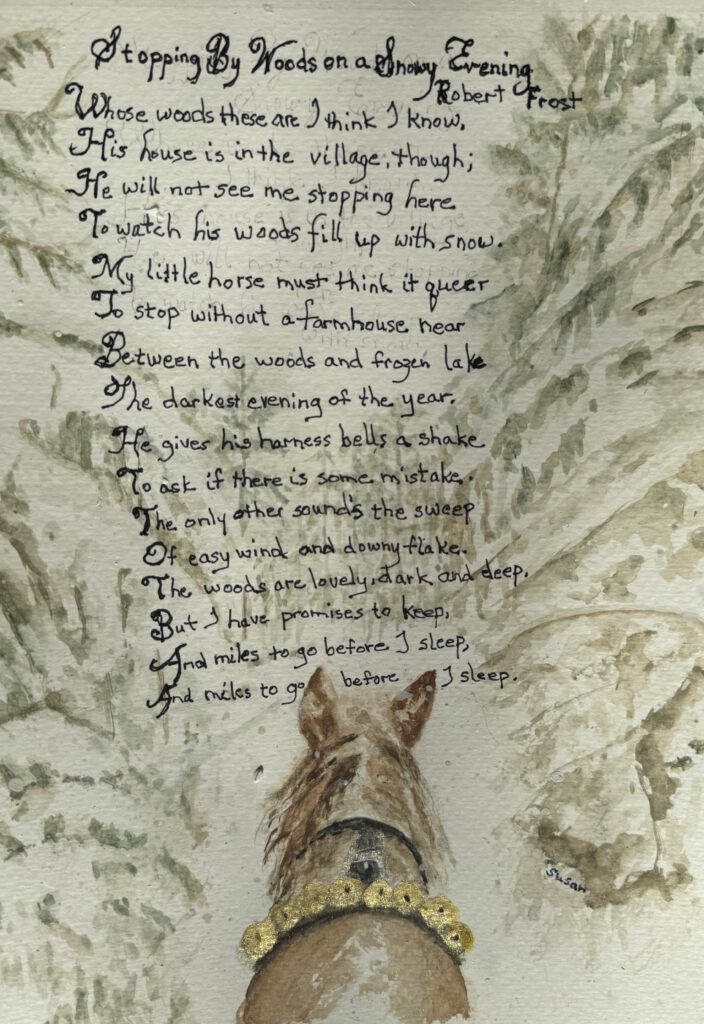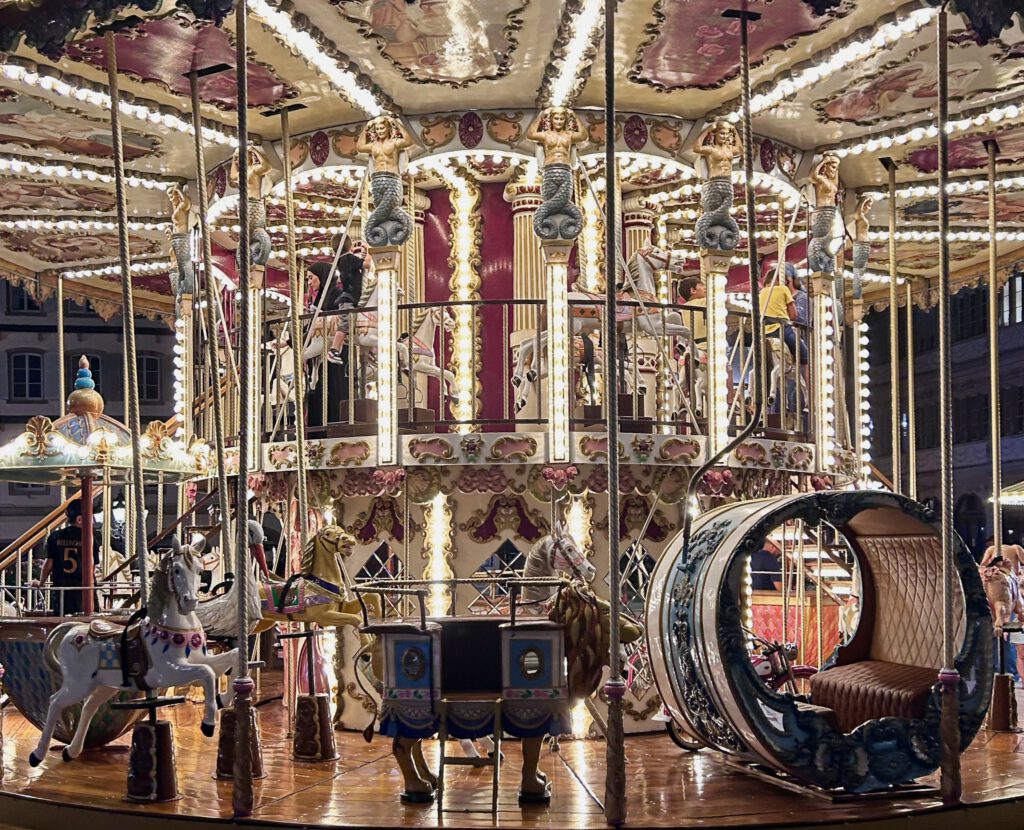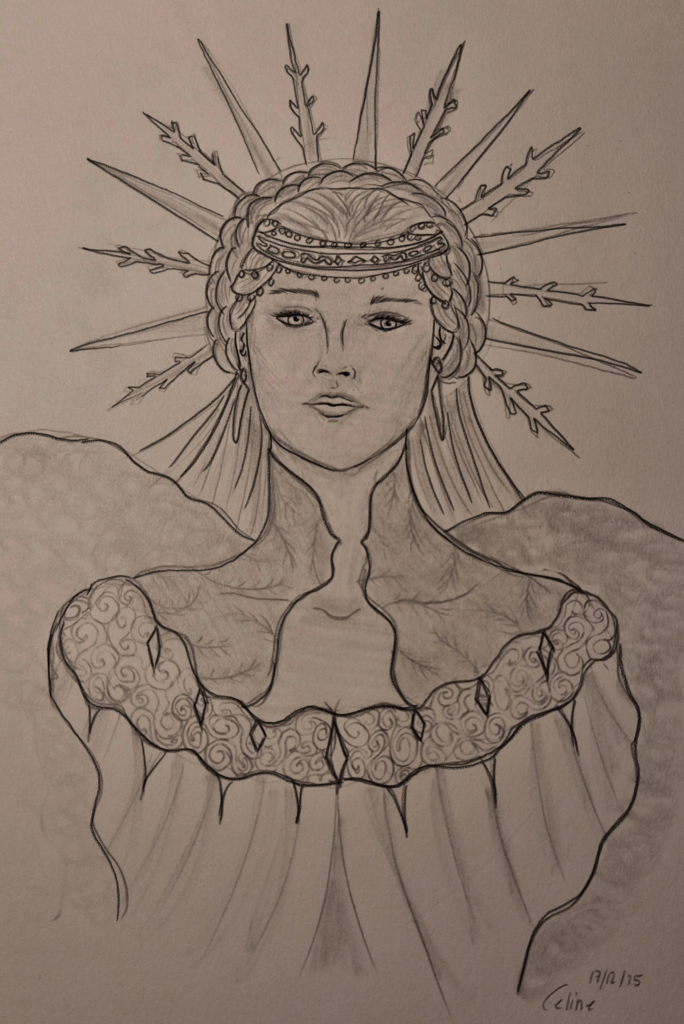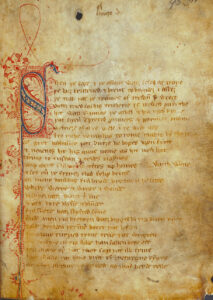The Madness of George III: Shakespeare, the History Play and Alan Bennett
Brian Gibbons
Published in Connotations Vol. 8.1 (1998/99)
In 1961 Alan Bennett, one of the four performers of the revue Beyond the Fringe, claimed in the programme to be writing a thesis on the retinue of Richard II. Given the parodic−satiric nature of the show, one assumed this was a joke, but while "The Retinue of Richard II, 1388−1399" strikes one as perfectly parodied academic style it also really was Bennett's Oxford thesis, and a source of sharp anxiety to him in 1961. The next year he gave up the idea of being a professional historian when the show transferred to Broadway; but history, and Bennett's failure to give it up, remain important factors about this writer.
Today, unlike other National Theatre playwrights such as David Hare or Tom Stoppard, Bennett also has a successful career as a performer, especially as a reader of children's books, for which he has a large affectionate public, and then there is his diary, a best−seller under the title Writing Home. Through television he has a popular image as self−deprecatory, ordinary, always garbed in tweed jacket, tie and v−necked pullover. This persona contains elements of self−parody and presumably is a useful mask; certainly it scarcely prepares one for the serious intelligence and often desolate, lonely imagination which lies at the heart of his work, in characters either "perfectly ordinary"—as in Talking Heads—or very much the reverse—as with Single Spies and The Madness of George III. The air of naturalistic indirection on the surface of dialogue and action, with word−play, jokes and minor absurdities, gives a subtlety which may disguise the underlying clarity and solidity of design and dramatic structure. Not surprisingly however, in a cultural climate such as today's, the dramatist whose moral intelligence is subtle, but also very definite, risks being not understood, not just misunderstood. This essay sets out a case for taking Bennett seriously as an imaginative artist, and [→page 2] it does so by considering Bennett's use of other playwrights' work: his critical—as well as his creative—intelligence.
In The Madness of George III Bennett is dealing with English nationhood, no less, with national and with private integrity. Forty Years On, Bennett's first independent play (which features everything one tries to forget about school) was, however hilariously, historical in subject as well as somewhat Brechtian in mode, and Bennett's preoccupation with history is also clear in A Day Out, which has World War I in the background. In 1988 Bennett's emphasis became much more explicit in A Question of Attribution (subsequently filmed for TV) about Sir Anthony Blunt, Keeper of the Queen's Pictures, homosexual, secret agent, traitor; a play which also features the reigning monarch Queen Elizabeth II. Bennett's portrait of the Queen is striking, by comparison with Shakespearean monarchs, for its humorous detail. At the same time there is a distinct, chill element about this monarch, and Blunt (who perhaps may be a hero) endures persecution which would appear more blankly cruel and hypocritical were it not so understated—so British—in style. We should note that the author's preface to the published playscript discusses patriotism and national decline.
The Madness of George III focuses on the English monarchy at a point mid−way on its long downhill road from Queen Elizabeth I to King Charles III, and it looks in both directions: it offers an oblique perspective on the United Kingdom and its monarchy today, using the filter of Hanoverian culture, and it has a short, unexpected time−shift in which a twentieth−century doctor explains the modern medical diagnosis of the King's illness as porphyria. It is also full of Shakespearean allusions and echoes. Bennett's play therefore invites recognition of parallels between the reigns of Shakespearean kings, Georgian Britain, and the present day United Kingdom. It shows King George III's Court as dull and stuffy, a mere prosaic residue of former grandeur—but goes on to show that however dull, a court will also generate real oppression. It is not for nothing that Bennett has studied Kafka: in this play he exploits Kafka's vision of institutional and bureaucratic menace. The Madness of George III, then, has three historical layers: Georgian, modern, Shakespearean. It is also interested in the corresponding history of drama—not only eighteenth−century Shakespeare, which is obvious, but twentieth−century [→page 3] Shakespeare, and its rediscovery of the Shakespearean History Play.
In Elizabethan drama, plays involving kingship or individual kings were on the whole no laughing matter. Shakespeare, confronted by the ramshackle efforts of other playwrights in dramatising the chronicles, developed a distinct dramatic kind, dialectical in conception, generically hybrid, with no shyness about anachronism. English history offered three tests of the monarchy by usurpation, King Henry VI, King John, King Richard II. Shakespeare, it may be noticed, deals with all three. The verdict of Andrew Gurr, after considering Elizabethan censorship of Shakespeare's Richard II and that play's contemporary political allusiveness, is that on the Elizabethan stage an "astonishing amount of political comment or display seems to have been acceptable."1)
The revaluation of Shakespeare's History Plays is a landmark in twentieth−century theatre, but particularly in the theatre in the 1960's, when Bennett was starting out; and his conception of the History Play is, as I shall show, influenced by the sixties' staging and theorising. I believe this to be the key to Bennett's conception and integral to this play's mode: I want to argue that The Madness of George III is in this sense a modern History Play.2)
* * *
Bennett began as a parodist, and has always showed a stylist's as well as a historian's acute interest in period. If there is Georgian furniture and Georgian silver, there is also Georgian theatre and Georgian Shakespeare, and Bennett is interested in that too. King George III was not the only one to draw comparisons between Hanoverian and Shakespearean monarchs, this was in fact a very popular journalist's and satirist's sport in Georgian England. Moreover, Shakespeare was remodelled and rewritten to make him fit the age politically, not just artistically: in George III's lifetime the Nahum Tate version of King Lear and the Cibber version of Richard III held the stage. Bennett makes an allusion to Cibber's version right at the end of The Madness of George III in the play's last line (93) when George asserts "The King is himself again."3) If we look this up in its original context, [→page 4] we find that it is pure Cibber, one of his famous additions to Shakespeare. But right beside it is a phrase ("Babling dreams") that in George III's time acquired dangerous topicality when the King's dementia and logorrhoea became public.
Cat. 'Be more yourself, my Lord: Consider, Sir;
'Were it but known a dream had frighted you,
'How wou'd your animated Foes presume on't.
Rich. Perish that thought: No, never be it said,
That Fate it self could awe the Soul of Richard.
Hence, Babling dreams, you threaten here in vain:
Conscience avant; Richard's himself again.4)
Richard's boasts don't prevent him losing his horse, his crown, and his head in short order. George III, in Bennett's play, is doomed too, though not so promptly. Bennett may give his play an ending superficially jubilant, but it is undermined in advance by a time−shift in which a modern doctor reminds us that George III's illness returned, the relapse ended only in death, and the disease may in fact be hereditary—so it may still run in the family.
The Madness of George III already seems the natural and obvious subject for the end of the 1980's, dramatising the dilemmas of today's House of Windsor (Prince of Wales included), and their continuity with those of the Georgian House of Hanover. If the present House of Windsor is tempted to look back in some envy to the historical Georges, Bennett's Hanoverian King is more likely to compare himself to some fictional, some Shakespearean monarch; and what is so striking is that the Shakespearean monarchs he refers to have such troubling implications—Richard II, Richard III, and Lear—and that they were, in historical fact, among the favourite sources for allusions to the monarchy and politics during George III's reign. Hanoverian politicians and cartoonists themselves displayed a remarkable interest in adapting Shakespeare for satiric and ironic allusive commentary on contemporary politics: so much so indeed that when the King suffered his late relapse into madness, the London theatres were prohibited from putting on performances of King Lear for nine years, from 1811 to 1820. In George III's lifetime the Tate version of King Lear, with its happy ending, held the stage (although, for a text to read, informed [→page 5] taste turned back from Tate to Shakespeare); and it was Cibber's version of Richard III, for all its vulgarity, that appealed to audiences—indeed its stage life lasted until the recent past; it has also influenced the way modern productions of Shakespeare's play adapt the text: sometimes they retain a favourite line or two of Cibber, as in Laurence Olivier's film version.
Near the end of his play Bennett makes explicit allusion to King Lear when King George (80) reads the scene in Shakespeare where Lear awakes and is restored to his daughter Cordelia. This is the way the eighteenth century English theatre preferred King Lear to end—as it does in Nahum Tate's adaptation, where Lear is restored to sanity and to his throne. In fact Tate restored the ending from the historical sources which Shakespeare had deliberately changed in order to add incalculable force and darkness to the tragedy. Bennett, too, departs significantly from his historical sources, choosing to end his play well before George III's reign is over, and before the King's relapse. Notice that Bennett does to the historical record of George III the opposite of what Shakespeare did to the historical record of Lear, but in so doing Bennett fits eighteenth century history to eighteenth century theatrical taste, creating in effect a Nahum Tate version of King George III.
The audiences of today in the National Theatre seem, ironically, to prefer The Madness of George III as a Tate−style drama with a mock−eighteenth century happy ending, something which the playwright had not expected and which he disapproves as a misreading and over−simplification of the play: "I had not anticipated," Bennett writes, "that the audience would be so whole−heartedly on the king's side" and wryly goes on to record that in performance the line "The King is himself again" was taken by audiences to mean that they could once more "take pleasure in his eccentricities, enjoy the discomfiture of his doctors" and receive the conclusion as a "nice, sentimental" one (ix).
This makes clear that Bennett by no means thinks of the play as a comedy or a tragicomedy; in my view it confirms that he aimed at a History Play, but with a special modification: Bennett has in mind not only Shakespeare as we know him now but also the eighteenth−century Shakespeare, a source of scandalous parallels to contemporary Hanoverian times.
[→page 6] Bennett's King George III says (80) of King Lear "It's my story." This will also remind us of what Elizabeth I said of Shakespeare's King Richard II: "Know you not that I am Richard II?"5) In Shakespeare's own time censorship had ensured that the deposition scene in Richard II was omitted from the published quarto, and in the eighteenth century it was again the deposition scene that upset the censors: so much so that they banned even an adapted version of Richard II by Nahum Tate from stage performance.6) Bennett has remarked about The Madness of George III: "Any account of politics whatever the period must throw up contemporary parallels. I think if I had deliberately made more of these it would have satisfied or pandered to some critics who felt that was what the play should have been more about. But it is about the madness of George III" (xviii). Well yes, it is understandable that the author should in the first place want recognition for the new thing his imagination has created; but after all in this play Bennett contrives that the madness of George III should acquire all manner of configurations; the king himself insists (41) he is mad only nor−nor−west:
Not mad, though, me. Not mad−mad−mad−mad. Madjesty majesty. Majust just nerves nerves nerves sss … .
His doctor, Willis, coldly comments "The state of monarchy and the state of lunacy share a frontier … . Who is to say what is normal in a king?" (47).
Bennett's Prince of Wales, on the point of declaring himself Regent, forcibly refuses his mother access to the King, and alludes to his father's tendencies, in madness, to lechery, when he tells his mother (32): "in his current frame of mind His Majesty does not seem to care for you." He then uses the words of Shakespeare's Claudius, commenting on Hamlet's behaviour in the Nunnery Scene: "His affections do not that way tend."7) Now presumably the Prince of Wales is consciously quoting, knowing that his German mother will not recognise the ironic allusion; and certainly Bennett the playwright is quoting in the expectation that at least a proportion of the audience will get the allusion. For those who do recognise the allusion, there is much food for thought. In Hamlet it is the son not the father who seems mad. In Bennett's play it is the reverse. In Hamlet it is the mother's taking a second husband that causes the son great [→page 7] suffering, whereas Bennett's Prince of Wales is cynical about his father's adultery and callous towards his mother, who remains faithful. Parallels between the two plays are therefore obvious food for thought—a politically corrupt court, a frustrated heir to the throne, and the issue of royal madness. So in fact Bennett's play provokes his audiences, via this detour not only in Hamlet but also in Prince Hal, to think about what is also a topical issue now, today—the psychological and political frustration of being heir apparent, which as the play says is "not so much a position as a predicament."
Today's audiences hearing this are likely to think it an allusion to our Prince Charles, but one should remember that his recent predecessors include Edward VIII, the abdicator, and Queen Victoria's eldest son, who as Edward Prince of Wales had to endure his mother's regal disapproval for so long, his only consolations being horseracing, mistresses and an ever−expanding girth. Bennett admits in his Introduction that strict historical truth was a casualty in his portrait of the Prince of Wales, explaining that "the play works only if the antipathy between father and son, never far below the surface with all Hanoverian kings, is sharpened" (xi). Certainly the Shakespearean allusions work because Bennett makes the antipathy between father and son sharp, and this permits some close parallels to be made: in King Henry IV Pt. II the King on his deathbed rebukes the Prince of Wales for taking his crown away:
I stay too long by thee, I weary thee.
Dost thou so hunger for mine empty chair. (4.5.93−94)
Bennett's King George is angry in the same way, using the same turn of phrase:
KING … Well, I am old and infirm. I shall not trouble you long.
PRINCE OF WALES I wish you good health, father.
KING Wish me, wish me? You wish me death, you plump little partridge. (28)
The fact that George's outburst interrupts a concert in the presence of the whole Court signals a cross−reference to Hamlet, where in the play−scene the heir apparent provokes the king to disrupt the performance. King George at the very end of the play (93) makes another allusion to Henry IV Pt. II [→page 8] when, restored politically and personally, he rejects his doctor, using exactly Prince Hal's words when Falstaff interrupts his coronation procession and Hal rejects him (5.5.56): "Presume not that I am the thing I was." This parallel is, again, not so straightforward in its implications. Even the veteran opportunist Falstaff miscalculates the sheer tough impersonality, the difference, that royalty involves, learns the hard way that monarchy is proof against sentiment; and whatever hard−hearted greed the episode may expose in Falstaff, it even−handedly exposes a sheer sourness in the Prince also. Shakespeare's scene has wider interests than in the persons themselves, it is interested in the laws of power, showing that the crown is pitiless in diminishing humanity, whoever wears it.
There may be an especial irony residing in the fact that the present Prince of Wales is so stout a defender of Shakespeare for his language whereas he is not heard to say, as Ben Jonson said of Edmund Spenser, "I would have him read for his matter."8) But certainly Bennett's George III is quite clear that it is Shakespeare's matter that counts: that is why he keeps quoting him. The complication in such a deliberate use of allusion as Bennett deploys in this play is that there can be no delimiting its implications: the nature of irony, its strength and its risk as a rhetorical mode, is its open indefinition.
* * *
The Madness of George III begins the way Shakespeare's Measure for Measure ends, with a royal procession interrupted by a woman petitioner. Bennett wrote the final draughts of his playscript, so he informs us, in collaboration with the play's National Theatre director, Nicholas Hytner; I suspect it to be significant that Hytner had not long before directed a modern−dress Measure for Measure for the Royal Shakespeare Company, a production which visually suggested the present day and the 1930's and in which Shakespeare's Duke was comparatively young and resembled King Edward VIII at the time of his abdication. At the beginning of The Madness of George III the woman (a Mrs Nicholson) who petitions George III, first submits her paper crying "I have a property due to me from the Crown of England"—"Give me my property or the country will be drenched in [→page 9] blood"—then suddenly takes out a knife and strikes the King. George III's reaction is phlegmatic: "Well, not with this, madam. It's a dessert knife. Wouldn't cut a cabbage" (1).
Evidently this is not the world of Shakespeare, and to stress the point that this is 1786, Handel's Music for the Royal Fireworks is playing. Furthermore, coming on top of the assassination attempt, the woman's prophecy is made to seem melodramatic, altogether un−British, quite foreign, in point of fact actually mad. Shakespeare in another play, Julius Caesar, had dramatised an assassination in which the killers conceal their intent by submitting petitions, and there the outcome is bloody enough to warm the heart of a Charlotte Corday; in Measure for Measure, however, Isabella is as ineffectual as the Mrs Nicholson who attacks George III, and, also like that Mrs Nicholson, Isabella's passionate outburst is dismissed (at least for the time being) as merely mad (5.1.33 ff.).
Mrs Nicholson was a historical person; her attempt on the king's life was made in 1786, not long before the storming of the Bastille: it was already by that date a different world from Sterne's Sentimental Journey of 1768, with its memorable beginning: "They order this matter better in France": subsequent history lends the phrase retrospective irony. In Bennett's play King George says of his would−be assassin (3): "She is fortunate to live in this kingdom, hey? It is not long since a madman tried to stab the King of France. The wretch was subjected to the most fiendish torments—his limbs burned with fire, the flesh lacerated with red−hot pincers, until in a merciful conclusion, he was stretched between four horses and torn asunder. We have at least outgrown such barbarities." Presumably George III has in mind his predecessor King James I, who decreed very similar punishment for the Gunpowder Plotters, ending in dismemberment without the use of horses.9) What neither the audience nor King George anticipate at this point is that he himself will soon be subject to torture, as sanctioned by the Royal College of Physicians, and that then the King will invoke the past, an Age of Faith, in a vain attempt to stave off being tortured in the name of science.
* * *
[→page 10] A better term for Shakespeare's History Plays would be Political Plays; there would then be the added advantage of signalling how much is owed by our modern critical and stage interpretations of these plays to the modern masters of political theatre, Bernard Shaw and Bertolt Brecht. Bennett has wryly noted that critics of The Madness of George III describe his staging as "Brechtian," a term which Bennett says is nowadays "as two−edged a compliment as 'Shavian'" (Introduction xxi). I think he is right to object to such modish disparagement of Shaw and Brecht. It is complacent. In fact it took decades for the modern English theatre to catch up with Brecht in seeing that intelligence about politics is a dramatic strength in Shaw and in Shakespeare—for example Brecht made parodic use of Richard III in satirising Hitler in Arturo Ui in 1941 (he knew Jessner's great 1920 Berlin production of Richard III—more of this below), but in England the dominant stage interpretation of Richard III continued undisturbed in its traditional stress on the individual villainy of Richard. It is a reflection on the tenacity of the tradition−bound culture of British Theatre generally and its Great Actor cult in particular, that according to Laurence Olivier, in 1944 Richard III was "at this time a stale cup of tea"10) and therefore a suitable choice as a vehicle for his individual star performance of sheer acting, whereas in the same year Olivier's choice of a play to make into a popular film, as his contribution to the war effort, was of course Henry V, which he presented traditionally in doublet and hose but with a brief patriotic dedication tacked on.
Olivier's star−actor's performance as Richard III, first seen on stage in 1944, was reinforced by the film version released in 1955, prolonging its influence. Intervening productions in New York11) had suggested superficial analogies to recent tyrannical regimes in Germany and the USSR but English audiences had to wait until 1963 for a coherent staging of Richard III with modern political implications—this was the Peter Hall−John Barton production, which formed the concluding part of the first tetralogy collectively titled "The Wars of the Roses." Peter Hall records that he was reading a proof copy of Jan Kott's book Shakespeare Our Contemporary as he travelled to the first rehearsal. The next year a production by Peter Brook of a play by Peter Weiss, the Marat⁄Sade, which presents the world as an asylum full of murderous lunatics, against a background of the French [→page 11] Revolution, powerfully alluded to the phenomenon of political terror in modern regimes. The impact of these two famous productions of the early 1960's is apparent in subsequent staging of Shakespeare's History Plays and certain tragedies in particular; indeed the very recent film version of Richard III by Ian McKellen and Richard Loncraine (based on the National Theatre production of 1990) is distinctive not for its much−advertised Nazi period setting and the visual resemblance of the film's Richard to Hitler, but rather because it ignores the issue of Richard's madness, thereby reverting to an older Brechtian−style interpretation of the play as a political warning against totalitarian tendencies in contemporary society.
Although non−Elizabethan settings for Shakespeare are currently something of a vogue in the cinema and virtually de rigeur in the theatre, when Bennett was beginning his career around 1960 the staging of Shakespeare in non−Elizabethan terms was still only in the process of becoming intellectually respectable. Bennett began as a writer of parody, participating in Beyond the Fringe (1960) which included an admirable spoof of the mindless−but−well−spoken style of performing Shakespeare's History Plays in the pre−Peter Hall era: the Fringe parody climaxed with Jonathan Miller's12) extravagant imitation of Olivier's long−drawn−out death−agonies as Richard III. The sixties, when Bennett was making his name, saw the establishment of politically aware theatre, and politically aware Shakespeare—not only the Hall−Barton "Wars of the Roses" in 1963 but Peter Brook's King Lear of 1964 and Stoppard's Rosencranz and Guildenstern are Dead of 1967. The action of The Madness of George III, though itself very confined to the King's confinement for madness, is placed precisely between off−stage events which make their presence felt, events of epic scale and historic importance—the American and French Revolutions. If this reminds us of the Marat⁄Sade, can it be a coincidence? Whether subconscious or conscious, the parallel is close and associates the institutionalisation of madness with state bureaucratisation, and the development of state terrorism as an instrument of state policy—something featured in the 1963 Peter Hall production of Richard III.
Now Bennett says in his Introduction to The Madness of George III (xxi): "When I was writing the play I had no notion of how it could be put on [→page 12] except that I knew there was a flight of stairs at the rear of the stage" and that the play should begin and end with the King and Court descending these stairs. The designer of the National Theatre production devised a flight of steps running the full width of the stage at the rear. The book Peter Hall was so engrossed by when planning "The Wars of the Roses," Jan Kott's Shakespeare Our Contemporary, became highly influential and intellectually fashionable in the sixties, particularly among the younger generation which included Bennett. I still have my own fading copy from that period. Here is the book's leading idea: "We began our considerations with a metaphor of the grand staircase of history. It was on such a staircase that Leopold Jessner set Richard III … . That metaphor has philosophical consequences and is also dramatically fruitful. There are no good and bad kings; there are only kings on different steps of the same stairs. The names of the kings may change, but it is always a Henry who pushes a Richard down, or the other way round. Shakespeare's Histories are dramatis personae of the Grand Mechanism … which forces people to violence, cruelty and treason."13) Is it coincidence that Bennett's idea for staging is a grand staircase? Is it not extremely tempting to think Bennett subconsciously, if not consciously, influenced by Kott's metaphor of the staircase of history?
In any case Jessner's staging of Richard III at the Berlin Schauspielhaus in 1920, to which Kott refers, is well worth pausing on. Jessner said his aim was not to offer historical realism but to place vivid symbols on the stage. The actor of Richard was instructed not to impress the audience with his personal magnetism but to perform as merely one element in the political allegory. The set had a high stone wall stretched across the entire stage, pierced at the centre by a small portal. Slightly behind the first wall another higher wall rose, forming a terrace for Richard's ultimate entrance to the citizens and Lord Mayor. Above the second wall, outlining it at the top of sight lines, was a narrow framework of sky—lit in a foreboding crimson. Action in the first half was all on the horizontal plane in front of the wall; only in the second half was there vertical action, enhanced by a flight of red steps rising to the throne; an eye−witness recorded how all the heightened movement there produced a memorable contrast when Richard slowly descended the red staircase at the end in utter lassitude.14)
[→page 13] Peter Hall's 1963 production designed by John Bury likewise featured dominating grey walls; it was described as catching the "true grand Nazi horror of the play, with its imbricated black metallic wall and throne emerging from the shadows and receding again."15). Significantly Richard III himself, played by Ian Holm, avoided extravagant mannerism and gave an interpretation deliberately understating what Olivier had stressed, while at the same time bringing a new emphasis: Richard was clearly mad. He was progressively afflicted by sudden blinkings and twitches, credibly developing megalomania. A reviewer16) wrote that Holm's Richard was "not so much a villain as an insane manipulator of events" and considered this detracted from the suggested parallel with Hitler: "the anachronistic jack−boots, far from striking a note of fear, are somehow out of place, an irritant." The issue of madness dominated RSC productions in 1970 and 1975. The 1975 Richard III directed by Barry Kyle recalled the Marat⁄Sade in being set in an asylum with some characters costumed to suggest mental patients or concentration camp prisoners, and the conflation of Richard the madman with Richard the modern tyrant has been influential in many subsequent productions including the schizophrenic Richards of Al Pacino, 1973, Michael Moriarty, 1974, and Brian Bedford, 1977. Nevertheless Kott's concern with power politics, playing down the interest in the clinical−psychological idea of Richard, is still influential, as one sees from the very recent film derived from the National Theatre's Ian McKellen blackshirt Richard III of 1990; and moreover that production recalls significant aspects of Michael Bogdanov's at the Young Vic in 1978 in which the men wore lounge suits, dinner jackets or battledress, the women black cocktail dresses; Richard himself was "a fatly smiling boardroom type wearing slovenly worsted like a professional asset−stripper looking for companies to liquidate." Stanley telephoned nervously from a public phone box. Richard did not make his famous offer of a kingdom for a horse, being hemmed in by machine−guns at the time.17)
* * *
Bennett's layered references to and quotations from Shakespeare, mainly concerning Richard III and Richard II, Prince Hal, Hamlet and Lear, suggest that The Madness of George III is in part a meditation on Shakespearean kings [→page 14] and that the particular verbal allusions gain significance when related to their original Shakespearean contexts. There is a pattern of visual reference as well, the words also having a context of stage action. In Bennett's play at the point where the King's new doctor, Willis, begins his treatment, he breaks Court decorum by daring to look at the King directly (which Court etiquette forbade), then speak to him directly (which was also forbidden), then he takes physical hold of the King's shoulder (which was absolutely unthinkable). The King first freezes rigid with anger, then goes for Willis but falls. He just stays sitting on the ground:
WILLIS Your Majesty must behave, or endeavour to do so.
KING Must, must? Whose must? Your must or my must? No must. Get away from me, you scabby bumsucker.
PAPANDIEK Easy, sir, easy.
KING No, no. Leave me boys. Let me sit upon the ground and tell … tell−tell−tell− tell … . (50)
There are parallels and quotations here to two key episodes in Shakespeare's Richard II, from 3.2. and 4.1. In fact these are prepared for by an allusion to Richard II much earlier but which it is easy to overlook, because not tagged by a verbal quotation. This is when King George refuses to sign urgent state papers handed to him by his Ministers: he is having difficulty with his sight as well as his mind, and cannot read properly; he insists, "I do not sign anything I do not read. I might be signing my own deposition." The idea of deposition, coinciding with the stage business with the paper he is urged to accept, recalls 4.1. of Richard II. There the King is given a list of crimes he must confess and retorts—"Must I do so? and must I ravel out ⁄ My weav'd−up follies?" (4.1.228−29). However in Bennett's play the parallel is half−obscured because King George is immediately distracted from deposition by the random triggering of another idée fixe, America. To recall his American colonies' rebellion is torture to George III:
All ours. Mine. Gone. A paradise lost. The trumpet of sedition has sounded. We have lost America. Soon we shall lose India, the Indies, Ireland … . (25)
The King foresees in the loss of one colony the falling away of the entire British Empire; his Ministers have until now considered this a minor [→page 15] obsession; but now, when the King's illness seems to be intensifying, the outburst about America suddenly looks as if it could be a symptom of real madness. To the theatre audience, of course, it is clear that the King is not exaggerating (except about the pace at which the empire will dissolve), though it is impossible to gauge whether the King's insight is shrewd intuition or paranoid fantasy induced by his disease.
But to go forward to the episode already quoted where King George is sitting upon the ground: In 3.2. of Richard II the king laments the falling away of his supporters which he sees will lead to the loss of his crown to the rebel Bolingbroke. He indulges in sweeping emotional rhetoric— "For God's sake let us sit upon the ground"—(3.2.155) rather than act decisively in such a moment of crisis, so giving his supporters an impression of self−pitying defeatism and bad judgement; and yet from a longer perspective, that of Shakespeare's audience, or of George III, Richard's sense of incalculable loss (though he cannot give rational justification for it) is not disproportionate to the true scale of the process as Shakespeare presents it: there is, definitely, much more in this rebellion than the deposition of a single king.
Bennett suggests a parallel between George III and Richard II, but also another figure in the same Shakespeare play—one who is aged and sick: John of Gaunt. Indeed for Bennett these two figures Richard and Gaunt seem to coalesce as a complex image of self−division. Gaunt laments England, prophetically seen as betrayed by the corrupt king, "England, that was wont to conquer others" (2.1.65), "This other Eden, demi−paradise" (2.1.42). Gaunt in his sickness can play nicely with words, whereas George III in his sickness is the opposite, suffers from uncontrollable punning and verbal diarrhoea. An even sharper parallel with Bennett's King George is in Gaunt's warning Richard to beware physicians: Gaunt is speaking metaphorically, but the force of his metaphor is in its implications, in its insistence on the mortal and vulnerable body, not any supposed divine right, of a king:
And thou, too careless patient as thou art,
Commit'st thy anointed body to the cure
Of those physicians that first wounded thee. (2.1.97−99)
[→page 16] In Shakespeare's Richard II the figure of Gaunt, mortally sick—"Gaunt am I for the grave"—is an image of the sick body politic and also a mirror in which the king's fate is foretold, though King Richard cannot yet recognise it himself. Clouded vision also affects King George—it is one of the actual symptoms of his sickness—Bennett leaves the metaphoric significance implicit—but whereas George III like Richard II prays for death to release him from his sufferings, Bennett's play ends not in tragedy but with the King's restoration to health and rule, although as everyone knows (and as Bennett makes explicit in a deliberate anachronism, bringing on a twentieth−century doctor to tell), the historical George III later relapsed into irrecoverable madness.
Bennett's George III performs an actual fragment of Shakespeare's King Lear—recognising as he does so its ironic application to himself—and thereby prompts us to recognise parallels in earlier scenes concerning King George's madness and his subjection. What, for instance, of those images of the King strapped in Dr Willis' chair, scenes which at first sight probably seem redolent of a Foucault version of the Age of Enlightenment (or, less loosely, may for some spectators bring memories of the 1960's Theatre of Cruelty and Peter Brook's Marat⁄Sade).
Yet if we do ask where a chair is required in Shakespeare's King Lear the answer may be surprising: for the episode George actually reads aloud, when Lear is brought on unconscious in a chair, to awake and be restored to Cordelia, is preceded in the play by two grimly different instances: first the chair of state, which is needed for 1.2. when Lear fatefully divides his kingdom, and second, the chair required for Gloucester's blinding—"Bind fast his corky arms … . To this chair bind him" (3.7.29−34) as Cornwall orders, and Gloucester's eyes are gouged out—and with his own son Edmund's acquiescence. The complete subjection and humiliation of the king is marked by physical suffering in both plays: Bennett makes a visual parallel between George III and Lear by showing George progressively reduced to filthy rags, as his mental disorder reaches a peak; but in Bennett's play the King is not physically tortured in a chair—the chair is associated with psychological torture—the physical torture is applied to the king by doctors (in King Lear the doctor gives Lear comfort) and it is atrociously painful, causing the king to scream, but it is done in a different [→page 17] position—the King is held face down as the candles burn for his flesh to be blistered. It seems probable that here Bennett is alluding to the twin of Richard II, Marlowe's Edward II, memorably revived in the theatre in the 1960's by Ian McKellen, and which features perhaps the most terrible torture in all Elizabethan drama, as the king is held face down, to die screaming in agony as Lightborn thrusts a red−hot poker into his rectum.
* * *
The entire plot of The Madness of George III is devoted to insisting that to be an English king is to be subject to systematic deformation, only the difference in Bennett's play, compared to Shakespeare, is that the level of normal domestic existence is more clearly invoked while at the same time shown to be inaccessible to the monarchy, and this is achieved by a much greater use of humour. In the play George III calls his queen affectionately Mrs King, and her concern for him is strongly, even sometimes movingly expressed; but the royal pair are also shown in a contrary light, blankly indifferent even to their immediate household once the crisis is over and normal service is resumed. Bennett makes emphatic the repercussions on the royal servants, particularly those who make the mistake of responding with sincere humanity, such as Papandiek and at the higher rank, Greville (there is a complex parallel to be drawn with the servants in King Lear). Shakespeare does not show monarchs experiencing domestic intimate normality: not even in Antony and Cleopatra, where privacy is somehow always made public and intimacy always precarious. King George III may aspire to be a normal "farmer George" but the play shows the deformation of monarchy is inherent in the institution: the King at one point is put into an actual straitjacket, but metaphorically he is always wearing one; this is ironically underlined by Bennett's stagecraft, juxtaposing the King's straitjacketing to the sight of the tubby Prince of Wales being laced tightly into a corset, a slave to fashionable tailoring (59). This is a Brechtian gestus; the play shows continuously that the closer an outsider comes to the life of the Court, the greater is the deformation suffered.
[→page 18] At the same time an audience today, used to current fashions of modernising Shakespeare to encode political comment, will also be aware that another perspective altogether is being invoked: for modern history, particularly in totalitarian states, offers notorious instances of the medical profession allowing imprisonment and torture to be carried out in the name of medical science—and there is Kafka, for instance his story "In a Penal Settlement," with its scientifically precise machine which inscribes a description of the crime in the flesh of the prisoner strapped down for the punishment. The King's disease, which modern medicine has identified, is not in the play the object of single−minded medical curative intent. The king's own doctors have other priorities, as do his Ministers. The king's sickness is a means to prestige and power. Each doctor's diagnosis is an assertion of his status and also an expression of his power against his rivals. Furthermore each treatment is powerful in relation to the prestige of the patient; the more the patient is reduced to subjection, the more the doctor's power increases, and the best sign of the doctor's power is the greatness of suffering imposed on the King—power increases in proportion to the violence of the torture. Willis, whose method of treating the king is terror rather than physical torture, is perfectly clear that however incompetent and destructive he may consider the treatments his rivals prescribe, he must acquiesce in them to maintain the prestige of medicine as an institution, without which his own power could vanish. He exactly appreciates the cultural politics which makes medical science challenge monarchy, and instinctively senses that in the long run history is on his side. More close to home, the doctors' violence towards their royal patient is an abuse of their power as scientists and is parallel to, is a figure of, the imminent degeneration of reason into terror on a national scale in revolutionary France, to which Bennett gives explicit emphasis at the close of the play:
KING The Bastille? The terror is in the word. It is no different from the prison I have been in these last few months. (89)
There is a memorable etching in which Goya illustrates the maxim "The sleep of reason breeds monsters." In All's Well 2.3. Shakespeare endows old Lafeu with eloquence on the subject: "They say miracles are past, and [→page 19] we have our philosophical persons, to make modern and familiar, things supernatural and causeless. Hence it is that we make trifles of terrors, ensconcing ourselves into seeming knowledge, when we should submit ourselves to an unknown fear" (2.3.1−6). In Bennett's play about King George III, England may pride itself on its age of reason, on having outgrown barbarism, but when the king experiences subjection to those other Enlightenment watchwords, surveiller et punir, and suffers torture by his doctors, he will cry out "I am the Lord's anointed," thereby invoking the ghosts of his Shakespearean predecessors such as Richard II:
Not all the water in the rough rude sea
Can wash the balm off from an anointed king; … . (3.2.54−55)
Modern history also furnishes complicated perspectives on the supposed diminution or disappearance of the sacred aspect of the monarch in Western culture: how is the public reception of the assassination of President Kennedy in Dallas to be interpreted? At the time it was experienced as a kind of tragedy, yet it is striking what a hit−and−miss affair the sacralisation of a ruler seems to be: consider the failed attempt by gunmen to shoot President Reagan getting into his limousine, or the escape of Prince Charles when shot at from close range in Australia: the Prince was mercifully unharmed and reacted with admirable sang froid; but is sacredness conferred if the assassination attempt succeeds—as seems the suggestion in Shakespeare's Julius Caesar? (This paragraph was written before the events of 31 August 1997).
The Madness of George III is designed to demonstrate the precarious practicability of the (post Glorious Revolution) Georgian formula, that the monarch must conform to a public idea of being royal and of being a good fellow. It is a recipe for survival, but it does require the constant promotion of the idea of royal family—that is to say as long as it appears satisfactory nobody cares about the reality—which is a very different thing from the old conception of royal secrecy, the mystery of rule. In the movie version of the play Bennett gives the King new dialogue. He is seen standing on the steps of St Paul's—the location which for modern television viewers, if not theatre audiences, is irresistibly associated with the royal wedding of Charles and Diana—and it is there that the King marshals his [→page 20] large family and tells them: "Let the people see we're happy. That is why we are here."
If the King is to be king it is a matter of being seen to be so; near the end of the play (81−82) Thurlow tells him "Your Majesty seems more yourself" and the King replies "Do I? Yes, I do. I have always been myself even when I was ill. Only now I seem myself. That's the important thing. I have remembered how to seem. What, what?" If we recognise the allusion to Cibber's King Richard III (Catesby's "Be more your self, my Lord") we will recognise the implied irony—the King indeed can only seem himself, his illness is not cured, this is only a remission. On the other hand if we do not attend to the allusion and take the exchange at face value, so to speak, another allusion presents itself—for to seem royal, to seem every inch a king is thereby resoundingly to deny the credo of Hamlet, for whom as Shakespearean heir to the Danish throne, kingship is integrity or it is nothing:
Seems, madam? nay, it is. I know not "seems." (1.2.76)
Would Bennett have his audience reconsider the issue, in a modern context of mass−media influence on the reputation of the monarchy, and consider whether such a belief as Hamlet's "I know not seems," in any royal person, must constitute a tragic flaw? And could that be the point of Measure for Measure, as well as Henry V? One ruler, the Duke, has to learn to seem, the other, Henry, never has a need, alas, to learn it, is perfect in his part from the beginning ("I know you all" observes the supposedly engaging youth) and needs no stringent lacing−up to fit the role. Henry V never had any excess of humanity to discipline and punish in the first place. Bennett sympathises with his King George's humanity, but shows with strict consistency that the humanity is only uppermost when the king is deranged. Bennett plainly did not write a sentimental melodrama nor a play with one star part, whatever his first audiences and his actors might think. He wrote a History Play, and that is what the allusions to Shakespeare tell us.
Bennett does not allow his George III to forget that he is separated by the Glorious Revolution of 1688 from British monarchs of Shakespeare's time: not for George III is there the illusion of choice open to the perverse reigning monarch of Shakespeare's time, James I, who is alluded to by Shakespeare when he makes his Duke in Measure for Measure (1.1.67−68) [→page 21] say "I love the people, ⁄ But do not like to stage me to their eyes";—but notice that Shakespeare's Duke, whatever he might say there, does just the opposite, and takes good care to absolutely act his socks off before his people in a fantastic Act V.
Westfälische Wilhelms−Universität
Münster
































 Ring out, wild bells, to the wild sky,
Ring out, wild bells, to the wild sky,

















